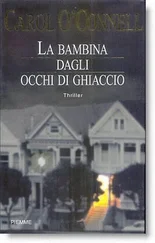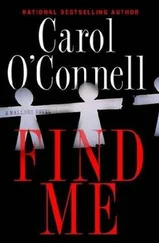She stood by the love seat where Helen had done her mending in the evenings. The sewing basket was in its usual place. She had long ago come to terms with reminders of Helen. But she would not look at the overstuffed reclining chair where Markowitz had sat reading his paper every night save Tuesdays and Thursdays.
What must it have been like for him, being alone in this place. She knew she could never live here again. It had been hard enough after Helen's death.
She slowly gravitated to the kitchen, pulled along by memories of the only woman who had ever cared if her hair was combed and her nails were clean, if she had her milk money and a proper lunch to take to school. She remembered the kitchen as bigger. Perhaps she had always seen it through the eyes of the baby felon Markowitz had bagged.
"Whadaya think you're doin' kid?" he had asked, sitting back on his heels staring at her through the low window of the Jaguar which belonged to some sucker.
"Bug off old man, or I'll cut you," she had said.
He had brought her back to this house that night. Four tons of paperwork at Juvenile Hall didn't fit with his plans for a birthday party, he told her. Helen's cake had been sitting in the back of his car. It had a lemon smell, and Markowitz smelled of cherry-blend pipe tobacco.
The child in handcuffs had driven Helen wild. Poor Markowitz could not get them off fast enough to please his wife. And then young Kathy had been engulfed in the plump arms of a gentle woman who smelled of laundry soap, cleaning fluid and scouring powder. Beyond Helen were the smells of steamed vegetables and pot roast. And that night, young Kathy had smelled crisp clean sheets being pulled up around her face, and the smell of talcum powder as Helen leaned down to kiss her good-night.
Helen.
The house didn't smell like Helen anymore. There was dust over everything. Helen wouldn't have liked that.
Mallory climbed the stairs, heading toward the back bedroom which Markowitz had used as a den. She passed by her own room which contained all the furniture and belongings she had left behind. He had kept it the way she left it, against the day when she might want to come home again, she supposed. The door frame had the last notch of her growing years. The first notch was much closer to the floor. What a runt she had been at ten. How smug she had been at lying two more years onto her age.
Markowitz's den was disguised as the aftermath of a messy burglary, and she found nothing out of place. Riker had been careful to leave things as he found them. The bills were in the order of due dates, although a stranger would've assumed they had simply been dropped on the floor by the desk. His correspondence with the Old-time Radio Network lay on top of less important correspondence with the Internal Revenue Service. She picked up the metal waste-basket where he filed his credit-card receipts and his cancelled checks. Riker would have been through it, looking for a lead on BDA.
She began with the desk drawers, and an hour later, she had sifted down to the last drawer in a battered old filing cabinet to discover all her school report cards and her class photographs. She looked at the group shot from the private Manhattan day school which must have cost the old man a fortune in tuition. In that first photo, she was a stand-out, the only non-child in a sea of innocence. The old man had been right; she never was a little girl.
She was downstairs again, turning out the lights and fishing in her pockets for the car keys when she saw the pile of envelopes lying by the door under the mail slot. She leafed through the junk mail, almost passing over the flyer for the Brooklyn Dancing Academy.
BDA.
Riker said he'd been through every business listing in every telephone directory for all eight boroughs. Was he holding out on her?
She walked over to the table which held the telephone and the phone books. She held the heavy business directory cradled in one arm, tearing the pages as she riffled through them. There was no commercial advertising for the Brooklyn Dancing Academy. She checked the white pages – no listing. Riker was off the hook; his teeth were safe.
She walked slowly to Markowitz's chair and sank into it. Her hands ran over the worn leather of the arms, and she pressed her head deep into its back cushion. She was picking up a scent which had not been obscured by the layers of dust. A tobacco pouch lay open on the small table at her right. One hand drifted down to the pipe rack and her fingers grazed the smooth worn bowls of wood. She picked up the pipe with the carved face, his favorite because she had stolen it for his birthday in those early days when she still called him "'Hey, Cop". She held the pipe tight, her knuckles whitening as she closed her eyes, trying to imagine Markowitz in his young days.
Young Markowitz the dancing fool.
The stem of the pipe broke between her fingers. She looked down on the ruined thing, incredulous. She slowly lifted the pieces of it and tried to match the jagged shards of the stem together as though for a moment she believed she could undo the breakage and make it whole again.
Her hands dropped to her lap and the pieces of the pipe rolled out of her grasp and fell soundlessly to the rug. She began to rock slowly from side to side in a cradle motion dredged up from a time beyond her remembering, beyond the existence of hiding and running, stealing food and dodging flying broken bottles and the baby-flesh pimps. She rocked and rocked, deaf to the sound of the doorbell, to the loud banging on the door and the sounds of Robin Duffy turning his years-ago-given key in the lock. And for a time, she was deaf to the sounds of that little bulldog of a man with the frightened eyes who was shaking her by the shoulders and yelling, "Kathy! Kathy!"
***
A man with a knife appeared in every shadow of leaves playing on the window shade. Margot Siddon pulled the blanket up over her head in the child's conviction that blankets were protection from monsters. She had given up on sleep. She dialed Henry Cathery's number in the dark; her fingers were that practised in this particular order of buttons. He was not happy at being awakened.
"What!" he said loudly in lieu of hello.
"Henry, it's me. Could you loan me twenty dollars?"
"Margot, are you crazy? You're rich. You've got at least a mill after taxes."
"Not yet I don't, and the apartment was sealed up by the police. I can't even get anything to pawn."
"Go to her bank in the morning. Make them give you an advance. I didn't even have to ask for my advance. The bank just sent me a draft of the repayment agreement." There was no "goodbye" before she heard the impersonal click of a broken connection.
She slammed the receiver to the cradle. What a weird bastard he was, or maybe, she thought, just maybe he was onto the rings she had copped from his grandmother's jewel box. He didn't live in Disneyland all the time. He had his moments of clarity, and she found those moments creepy as hell. It was like coming upon someone who had been walking in his sleep and now was awake to the nth degree, awake to the entire universe, plugged in, turned on. And in those moments, he had wired up to her brain and shocked it clean of memory for days at a time, nights in succession without bad dreams. He was the only one she knew who would talk to her about the man with the knife.
She didn't recall one personal conversation with old Cousin Samantha in all the years she'd sucked up to the woman.
At first, she'd been taken to Samantha's apartment as a child. Then later, after her mother remarried and disappeared, she had gone alone. Old Samantha had been good for fifty bucks at a touch, but at the great cost of hours of monotony.
Her mother had once talked about Samantha in the days when the old woman was young and beautiful. It was hard for Margot to imagine that old bag of bones with her hump and her trembles as a beauty. When Margot was little, the old woman had called the whole world Darling, without regard to gender, or to animate or inanimate qualities. Margot was darling and so was the bow in her hair, and each had carried the same weight in the old woman's babbling affectations and affections. Over the passing years Cousin Samantha's babble had become shrill, reaching, at the last, the pitch of a scream of fear.
Читать дальше












